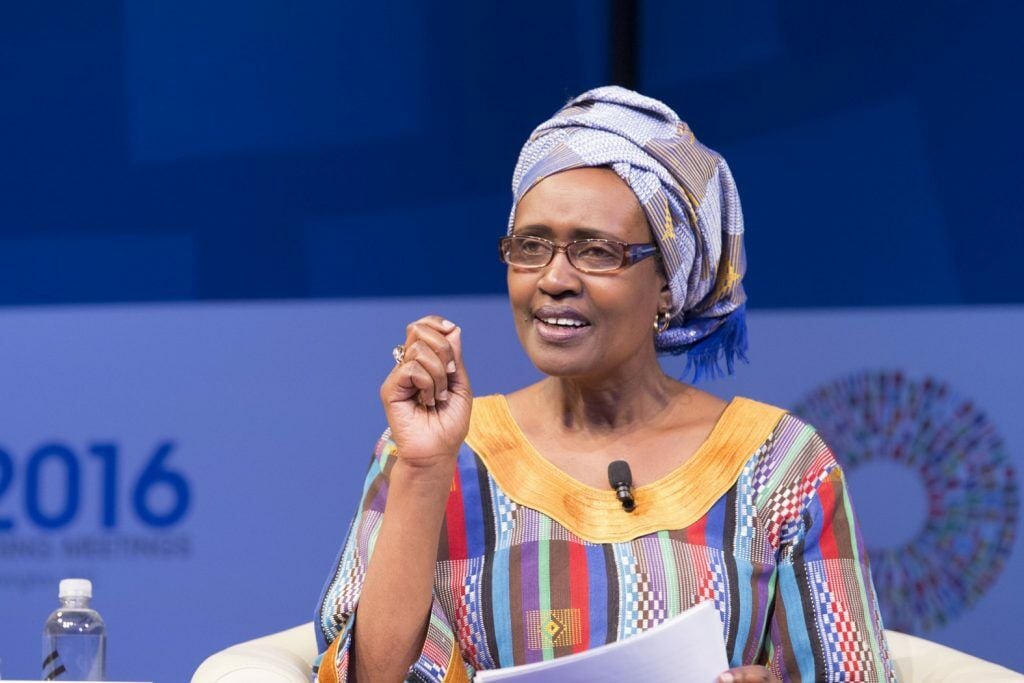Thailand praised for Aids response at UNAIDS conference

Thailand’s approach to community sustainability in its Aids response has earned high praise from Winnie Byanyima, Executive Director of UNAIDS and Under-Secretary-General of the United Nations. Byanyima commended Thailand’s success and urged other nations to adopt similar strategies to combat HIV.
During an exclusive interview at the 25th UNAIDS 2024 conference, which runs until Friday, July 26, Byanyima highlighted the effective collaboration between the Thai government and local communities in supporting people living with HIV (PLHIV).
“The Thai government is working closely with communities to deliver health services to people living with HIV. Thailand does this very well.”
Thailand’s progressive laws and policies also facilitate easier access to HIV treatment. The absence of laws criminalising individuals based on their sexual orientation encourages more people to seek necessary medical care. Primary healthcare services, including HIV treatment, are available free of charge, and seamlessly integrated with general healthcare.
Byanyima emphasized the importance of Thailand’s healthcare model, urging other nations to learn from its practices.
“The Thai model (in providing healthcare services and treatment) is a good practice. We’ve encouraged other countries to learn from Thailand’s response to HIV.”
Healthcare professionals
A crucial element of Thailand’s success is the significant role of communities in providing free services for PLHIV. To promote this model globally, UNAIDS has engaged Thai leaders and healthcare professionals to share their expertise internationally.
Thailand is on track to meet the 95-95-95 Global AIDS Strategy targets by 2025. This strategy aims for 95% of PLHIV to know their status, 95% of those diagnosed to receive treatment, and 95% of those treated to achieve viral suppression. By the end of 2022, Thailand had achieved 90% awareness among PLHIV, with 90% of diagnosed individuals receiving treatment, and 97% of those treated attaining viral suppression.
Thailand is dedicated to eradicating Aids as a public health threat by 2030, in line with the Sustainable Development Goals. The country is noted for its peer-to-peer approach initiated in 1996, where PLHIV support each other. This initiative has expanded into a national network known as the Comprehensive Care Center (CCC), with approximately 219 CCC networks across the country.
Despite these successes, Byanyima expressed concern over the ongoing stigma and discrimination against PLHIV, which discourages many from seeking treatment. UNAIDS has prioritised placing HIV services within communities to address this issue.
“We still find that stigma is very strong against people living with HIV. Everywhere I go, I see people who have received [HIV] treatment for 20 years still facing discrimination and stigmatisation from their communities.”
Confidentiality and privacy for PLHIV are paramount, as discrimination drives individuals away from lifesaving services. Byanyima called for global leaders to combat stigma and discrimination actively.
Stigmatization, discrimination
“We measured this, and we have an index to measure stigmatisation and discrimination related to HIV. We encouraged countries to use it to address stigma, especially in health safety.”
Byanyima also highlighted human rights abuses against marginalised groups, such as men having sex with men (MSM), in some developing countries.
“These people are being hunted down because they are gay.”
UNAIDS supports communities in defending the rights of these individuals and encourages unity against such oppression.
In addition, Byanyima discussed a new UNAIDS report suggesting that the Aids pandemic could be controlled by 2030. The report, The Urgency of Now: Aids at a Crossroads, was launched at the conference and indicates that critical decisions made this year will impact millions of lives.
The report concludes that with sufficient resources and human rights protections, the number of PLHIV requiring life-long treatment could stabilise at around 29 million by 2050. Conversely, poor decisions could see this number rise to 46 million.
Human rights
“World leaders pledged to end the Aids pandemic as a public health threat by 2030, and they can uphold their promise, but only if they ensure that the HIV response has the resources it needs and that the human rights of everyone are protected.”
Despite the ambitious targets, the global community still faces challenges. Last year saw 1.3 million new infections worldwide, a stark contrast to the 2025 target of reducing annual new infections to below 370,000.
“We need to move faster, especially in regions like Eastern Europe and Central Asia. We need to see new infections coming down, but they are now going up.”
The 25th International Aids Conference, UNAIDS 2024, is the largest gathering of individuals living with, affected by, and working on HIV. Held in Munich, Germany, and virtually, the conference operates under the theme of Putting People First, attracting over 10,000 participants.
Latest Thailand News
Follow The Thaiger on Google News:


























